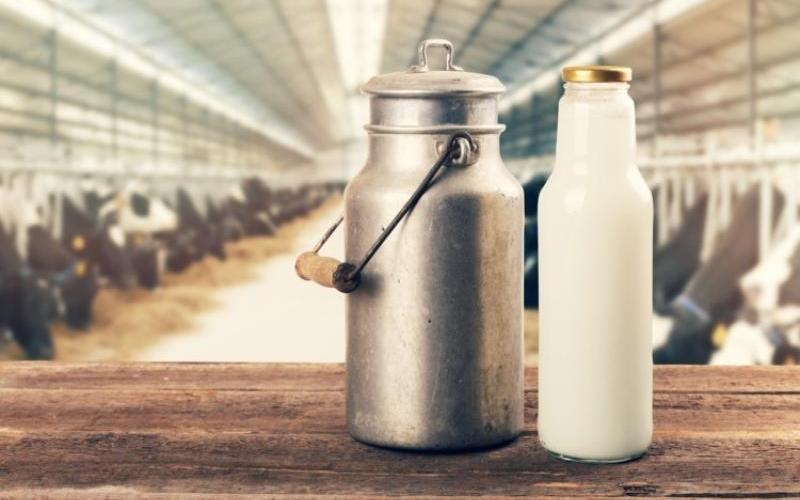European Elections Reflect Rising Farmer Discontent Over Environmental Reforms
Farmer protests across Europe have intensified in the lead-up to the elections, with the outcome of the European Parliament elections over the weekend sending a decisive message. According to agricultural economist Trevor Donnellan, it is not only farmers' frustrations that influenced the election results but also the concerns of EU voters about the cost of environmental reforms.

“Things have been slowly coming to the boil over the last 12 months or so. But really, the origins of all this are traceable back to when the last European Commission came into place, which was in 2019,” said Donnellan, head of economics at the Rural Economy Research Centre in Ireland.
The swift push for climate policies and regulation, particularly since the Green Party gained more influence post-2019 elections, has been a significant factor. “European environmental policy around agriculture is significant. That’s the first thing people in the US need to understand, and it is becoming more significant,” Donnellan noted. Regulations on greenhouse gas emissions, water quality, fertilizer use, and animal waste management are becoming critical issues.
In Ireland, agriculture must reduce greenhouse gas emissions by 25% by 2030. For a country with a substantial dairy and beef production footprint, this could mean a reduction in herd sizes. The Netherlands has already seen environmental policies forcing livestock producers to reduce their animal numbers, pushing some out of business.
These stringent regulations have fueled farmer protests over the past year, drawing international attention as farmers used tractors to block highways and protested outside parliaments. These actions have significantly raised awareness among politicians and the public about the need to consider farmers' perspectives in regulatory decisions.
The recent elections saw a shift to the right in the 27-nation bloc’s parliament, with Nationalist and Populist parties gaining ground. This shift is expected to make it harder to pass legislation on climate change and agriculture policy. “The kind of political perspective in this new parliament has moved a little bit further to the right, which probably is a little bit more aligned with the interests of farmers,” explained Donnellan.
This could potentially slow the pace of environmental regulation changes, or prompt a rethinking of some policies, resulting in a parliament that may be more sympathetic to farmers' concerns.
Donnellan highlighted the broader implications of Europe’s environmental policies. “Europe will demonstrate to the rest of the world what’s achievable in terms of having a more environmentally compliant economy, including in agriculture, and that the rest of the world should potentially follow suit from a policy perspective in the future,” he said.
The evolving situation in Europe serves as a significant example for global agricultural and environmental policy.
The swift push for climate policies and regulation, particularly since the Green Party gained more influence post-2019 elections, has been a significant factor. “European environmental policy around agriculture is significant. That’s the first thing people in the US need to understand, and it is becoming more significant,” Donnellan noted. Regulations on greenhouse gas emissions, water quality, fertilizer use, and animal waste management are becoming critical issues.
In Ireland, agriculture must reduce greenhouse gas emissions by 25% by 2030. For a country with a substantial dairy and beef production footprint, this could mean a reduction in herd sizes. The Netherlands has already seen environmental policies forcing livestock producers to reduce their animal numbers, pushing some out of business.
These stringent regulations have fueled farmer protests over the past year, drawing international attention as farmers used tractors to block highways and protested outside parliaments. These actions have significantly raised awareness among politicians and the public about the need to consider farmers' perspectives in regulatory decisions.
The recent elections saw a shift to the right in the 27-nation bloc’s parliament, with Nationalist and Populist parties gaining ground. This shift is expected to make it harder to pass legislation on climate change and agriculture policy. “The kind of political perspective in this new parliament has moved a little bit further to the right, which probably is a little bit more aligned with the interests of farmers,” explained Donnellan.
This could potentially slow the pace of environmental regulation changes, or prompt a rethinking of some policies, resulting in a parliament that may be more sympathetic to farmers' concerns.
Donnellan highlighted the broader implications of Europe’s environmental policies. “Europe will demonstrate to the rest of the world what’s achievable in terms of having a more environmentally compliant economy, including in agriculture, and that the rest of the world should potentially follow suit from a policy perspective in the future,” he said.
The evolving situation in Europe serves as a significant example for global agricultural and environmental policy.









